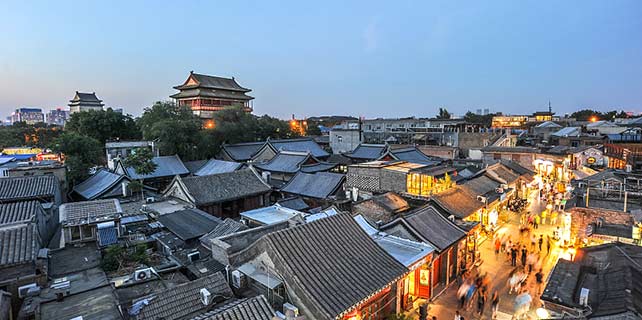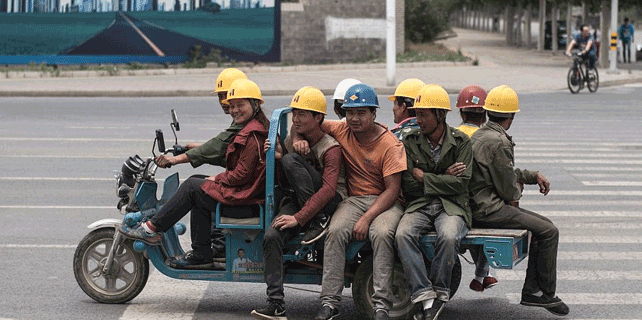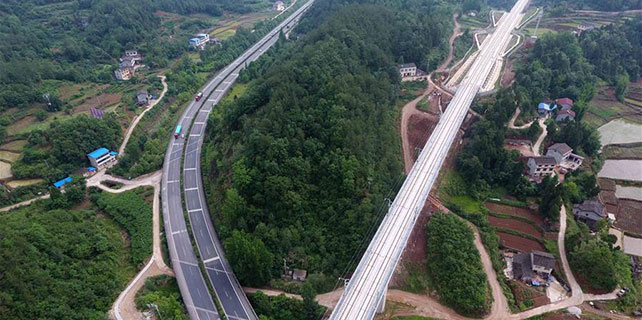Belt and Road can be a catalyst
Projects provide opportunity for rapid advancement of China's financial infrastructure, City of London adviser says
China's role in leading projects along the Belt and Road map will be a catalyst for the country to rapidly advance its domestic financial infrastructure and achieve integration with international financial markets, says SherryMadera, special adviser for Asia at the City of London Corp.
"China's participation in financing and investing in complex infrastructure projects along the Belt and Road will bring its domestic financial system in line with global standards and help China's capital market liberalization. I think the two are tied," Madera says.
|
Sherry Madera, special adviser for Asia at City of London Corp. Provided to China Daily |
In particular, she says, China's existing currency swaps with international central banks could be better used to mitigate currency risks in relation to financing cross-border projects. Additionally, China's massive domestic bond market could be used to support further funding of Belt and Road projects, and China could lead discussions on regulatory stability and transparency for markets involved in the initiative, she says.
Madera, who recently returned from the Belt and Road Forum for International Cooperation, in Beijing on May 14 and 15, spoke to China Daily in her office in Guild Hall, an 800-year-old heritage building in the heart of London's Square Mile financial district.
Madera's team is now pushing for the City of London to have closer engagement with China, especially amid uncertainties over Brexit.
Two of the four City of London overseas offices are in China.
"London doesn't need to be on the Belt and Road map, but we would like to finance the Belt and Road map," Madera says, noting London's expertise in project finance, green finance, insurance, financial product structuring and legal services.
The Belt and Road Initiative, proposed by President Xi Jinping in 2013, has won support from more than 100 countries and international organizations, over 40 of which have signed cooperation agreements with China.
HSBC estimates that Belt and Road development projects will cost up to $6 trillion (5.4 trillion euros; £4.7 trillion) in the next 15 years, while PricewaterhouseCoopers estimates the costs at $5 trillion.
China is already leading the initiative's financing efforts. At the Belt and Road forum, China committed an additional contribution of $14.6 billion to the Silk Road Fund, adding to its initial commitment of $40 billion in 2014.
Despite the optimistic outlook on financing, Madera cautioned that Belt and Road projects bear significant geopolitical and currency risks, since infrastructure projects require a lengthy time horizon, as they extend across different geographic regions and have complex financing structures.
"Structuring the projects in a way that makes them bankable and accountable is important to secure investor trust," she says.
There is also currency risk in the funding process, and a large fluctuation "can really skew your profit", she says.
Newly built infrastructure projects often have complex funding models, mainly because they attract different investors in the construction and operation stages. Banks typically finance initial construction, where risks and returns are higher; long-term low risk investors, such as pension funds, typically get involved in later stages when returns look more certain.
"From day one, you need to engage with both sets of investors. There are additional consideration about how to successfully move capital from phase one to phase two," she says.
To successfully mitigate risks, it is important to first ensure financial sustainability of projects under construction, and then ensure existing capital can be freed up and used again on other projects along the Belt and Road, she adds.
Involving the right players is also encouraged. Insurance and reinsurance companies can be crucial in helping to lower the risk of projects, while the involvement of multinational development banks can act as a stamp of confidence to help provide investable creditworthiness from the beginning and lower the costs of financing, she says.
Madera's advice is backed up by examples of big infrastructure projects that easily went wrong, even in mature economies.
The Berlin Brandenburg Airport, which was planned to launch in 2012, has experienced a six year delay and a tripling of costs.
The UK's Wembley Stadium, home of English football, experienced a five-year delay and a doubling of cost estimates. The big budget and time overrun led project contractor Multiplex to take its engineering consultant to court.
Different from single-country projects, the Belt and Road's international scope means more factors must be considered, Madera says. "More players are getting involved, more currencies are involved, as a function of globalization."
The need to address these challenges also brings new opportunities, including the development of green finance products, the internationalization of the renminbi and a further opening up of China's domestic financial markets for international engagement, Madera says.
Green finance refers to the trend of institutional investors putting their money into environmentally friendly projects that guarantee long-term returns and green credentials.
"The Belt and Road Initiative's need for funding can push forward the creation of a framework of standards for green finance products," Madera says, adding that initiatives in this area, such as Bank of China's launch of a green covered bond in London, is one example of an innovative product.
The three-year, $500 million bond, launched in November, is innovative for being a covered bond, meaning it gives investors a dual recourse structure: allowing claims over a dedicated "cover pool" of assets, and the usual claim against Bank of China. This is seen as an innovative structure that enhances the bond's credit quality, and it became the first such bond to be issued by a Chinese entity and secured by onshore assets.
With the increasing use of renminbi in the projects, "the Belt and Road is increasing efficiency across trade corridors, she says.
"Currency will play an immense role in how the trade corridor develops, particularly across parts of Southeast Asia and Africa."
Madera founded several of her own startups in the financial, technology, telecommunications, internet and travel industries.
She eventually turned toward the government sector and became minister-counsellor and director at the British embassy in Beijing from 2014 to 2016.
During her Beijing years, Madera witnessed an array of UK China financial milestones, including the fast growth of London into a leading renminbi offshore hub, the London-branch launches of several Chinese banks and, more important, President Xi Jinping's state visit to the UK in 2015, which marked the beginning of the "golden era" of the two countries' relationship.
So, when she returned to London in January to advise the City of London's Asia engagement, she was eager to put her China knowledge to use, and the development of the Belt and Road Initiative became a focus.
"What most inspired me is the scale of the ambition," she says. "President Xi has used the phrase 'project of the century'��that's what really brought it home for me: a plan for creating commercial, cultural, knowledge and technology links that touch the entire globe."
cecily.liu@mail.chinadailyuk.com
(China Daily USA 06/16/2017 page10)

















